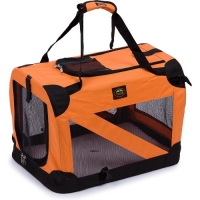
The methods below are proven helpful. The key is that the deworming product must be given in the correct dose (given by weight) at the proper time, and that they truly consume the wormer. To begin with, your veterinarian will tell you that parasites can steal nutrients from your horse and result of gastrointestinal irritation. The bad news is, if uncontrolled they can cause colic, intestinal ruptures and death. The three top things you ought to provide for your horse for his good health are clean water, high quality feed and a decent de-worming program.
A lot of people dont know but there are over 150 numerous kinds of parasites that could infest your horse. One type of parasites are classified as the large stronglyes or bloodworms. A few examples are ascarids, bots, tapeworms, pinworms, and threadworms. Normally, these species could lay more than 200, 000 eggs everyday. The thing with all these parasites is that they may all be present in your horse simultaneously, just in different lifecycle stages. So yes, while your horse may look healthy and happy, you don’t know what is happening inside.
These silent killers can damage tissues and vital organs, major blood vessels, cause obstructions and ulcerations in the digestive tract. Pinworms can really irritate horses and cause intense anal itching. Some signs or symptoms of infestation may (and may is the operative word, since you won’t usually see signs of problems externally) include dull, rough coat, weight loss, tail rubbing (hair loss), colic, depression, coughing/nasal discharge, loss of appetite etc. The most effective thing to do if you see some of these signs is talk to your Veterinarian about getting a fecal examination.
By counting the types and variety of eggs, the Vet can then tell you which de-worming program will work. This test in combination with a good worming program will keep your horses safe from the ravages of pests. You can give wormer four ways, oral paste syringe, oral liquid syringe, nasogastric tube and as a feed additive. Many times horses will not try to eat something they smell in their feed, so if you can work with the other two methods, you’d carry out worming effectively. Nasogastric tubes are best left for a Vet to administer the wormer.
To make sure they do swallow the dose, you can do one of two things – insert your thumbs into either side of their mouth to make them open their mouth and swallow the paste or liquid they were holding in their mouth, or place your hand under their chin and tip their head up so they must swallow. Amidst common knowledge, internal parasites could in fact kill farm pets. This doesn’t rule out horses. While they may be out of sight, they are doing substantial damage internally.
Jericho Bush is a animal medical practitioner in Canada. Also, he writes about Business Infusions and also other equine publications. He is an expert in veterinary practice management.
 Facts about Dog Anal Glands
Facts about Dog Anal Glands
 Pamper your fishes with the best of everything from Aquarama
Pamper your fishes with the best of everything from Aquara
Pamper your fishes with the best of everything from Aquarama
Pamper your fishes with the best of everything from Aquara
 The Most Expensive Horses Ever Sold
The Most Expensiv
The Most Expensive Horses Ever Sold
The Most Expensiv
 Collapsible Dog Crates And Other Pet Carriers For Air Travel
Taking your dog along with you on vacation can be quite
Collapsible Dog Crates And Other Pet Carriers For Air Travel
Taking your dog along with you on vacation can be quite
 Health Issues More Commonly Seen In The Bavarian Mountain Hound
Health Issues Mor
Health Issues More Commonly Seen In The Bavarian Mountain Hound
Health Issues Mor
Copyright © 2005-2016 Pet Information All Rights Reserved
Contact us: www162date@outlook.com